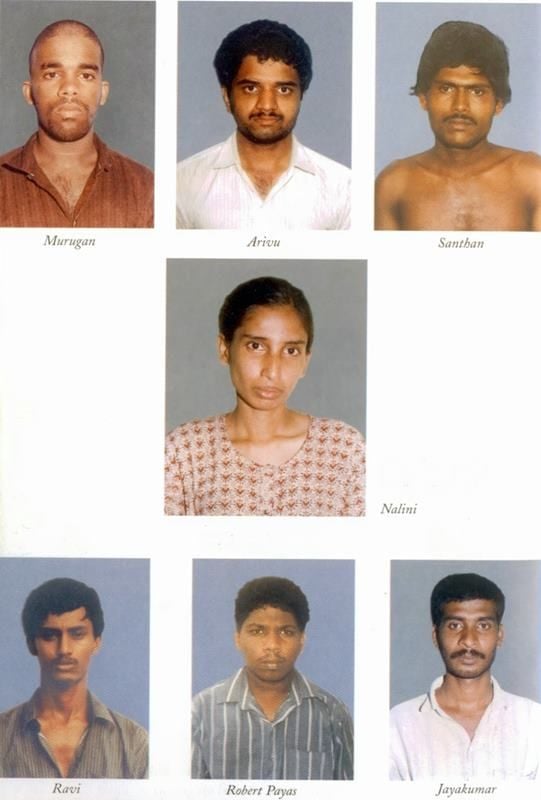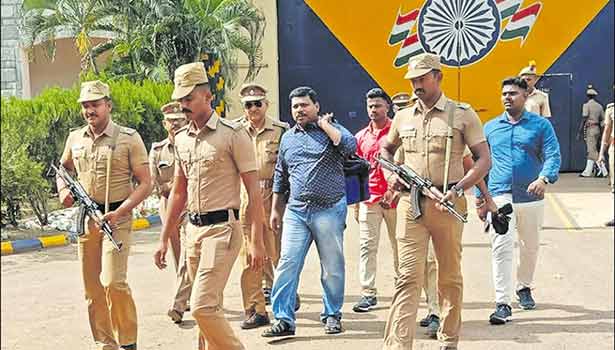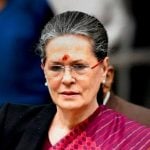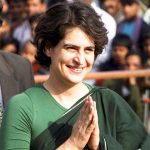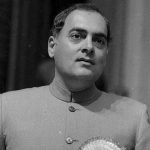Robert Payas Age, Wife, Family, Biography & More
Quick Info→
Marital Status: Married
Age: 50 Years
Nationality: Sri Lankan
| Bio/Wiki | |
|---|---|
| Full Name | B. Robert Pyas [1]The Hindu |
| Known For | His role in the assassination of a former Indian PM Rajeev Gandhi |
| Personal Life | |
| Date of Birth | Year: 1980 |
| Age (as in 2020) | 50 Years |
| Birthplace | Kokuvil, Jaffna, Sri Lanka |
| Nationality | Sri Lankan |
| Hometown | Kokuvil, Jaffna, Sri Lanka |
| Relationships & More | |
| Marital Status | Married |
| Family | |
| Wife/Spouse | R. Prema |
| Children | Son- Thamilko Daughter- None |
| Parents | Father- Balasundaram Mother- Name not known |
| Sibling | Sister- Premlatha |
Some Lesser Known Facts About Robert Payas
- Robert Payas or Robert Pious is one of the seven convicts who is serving a life term sentence in the assassination case of former Indian Prime Minister, Rajiv Gandhi. As of 2020, Robert Payas has spent almost three decades behind the prison bars.
- He was just a 20-years-old young man when he migrated to India along with his wife, sister, and brother-in-law, Jayakumar, and his wife, Shanthi, on 20 September 1990. On reaching India, Robert Payas and group registered themselves at Rameswaram as refugees. This was the time when thousands of Sri Lankan’s were migrating to India because of the Sri Lankan Civil War.
- After registering as refugees in India, Robert Payas and group did not stay in refugee camps and shifted to a rented house in Madras. The LTTE had sent Robert Payas and Jayakumar to India to arrange houses in Madras for the LTTE operatives, who later conspired and carried out Rajiv Gandhi’s assassination.
- Robert helped arrange two accommodations at Porur and Kodungaiyur in Madras, which accommodated co-conspirators from time to time. The LTTE operatives frequently used to assemble at Robert Payas’s accommodation to plan the course of action to be followed for the success of Rajiv Gandhi’s assassination.
- According to Robert Payas, he knew that the LTTE men who were living around him had come to India to execute a dreadful plan; however, he was not made privy to the conspiracy of Rajiv Gandhi’s assassination.
- On 6 February 1991, Robert’s wife gave birth to their second son, Thamilko, at a local hospital in Chetpet, Madras.
- On 21 May 1991, Robert was at his residence when Rajiv Gandhi was bombed. He got news about the same on the next day.
- On 10 May 1991, a Special Investigation Team (SIT) arrested Robert Payas from his residence in connection with Rajiv Gandhi’s assassination.
- Initially, the trial of Robert Payas and 25 other accused was conducted under Terrorist and Disruptive Activities (Prevention) Act.
- During his trial, Robert Payas made several revelations. He revealed in his confession that he had been helping the LTTE since 1985, first in its fight against the Sri Lankan Army, and then, against the Indian Peace Keeping Force (IPKF). As per Robert Payas, the civilians of Sri Lanka were subjected to great sufferings and torture by the IPKF. He also revealed that prior to migrating to India, he had lost his two-months-old son in the action of IPKF.
- Robert Payas was found guilty under several charges of IPC Section 120-B (involvement in the conspiracy) read with 302, 326, 324, 201, 212, 216 of IPC, 3, 4 and 5 of Explosives Substance Act, Section 25 of Arms Act, Section 12 of Passport Act, Section 127, Section 14 of Foreigners Act, Section 6 (1-A) of the Indian Wireless and Telegraphy Act, Section 3, 4, and 5 of TADA. [2]Indian Kanoon
- After over four years of court trial (India’s longest assassination trial), on 28 January 1998, the designated TADA court in Chennai gave death sentences to all the twenty-six accused in the Rajiv Gandhi’s assassination case. [3]APN News
- Several human rights organisations protested against the decision of hanging all the twenty-six convicts. They also said that the trial did not meet the requirements of a free trial as it was held behind the closed doors of the court and even the identity of around three hundred witnesses, produced before the court, was not disclosed to the public. Consequently, the verdict was challenged in the Supreme Court of India.
- On 11 May 1999, the Supreme court of India commuted Robert Payas’s death sentence to imprisonment for life. The Supreme Court ordered the death sentence to only four convicts, which was also later commuted to life imprisonment.
- In 2014, Jayalalithaa government of Tamil Nadu decided to free all the seven convicts imprisoned for life in Rajiv Gandhi assassination case. Opposing the decision, the central government approached the Supreme Court of India. In 2016, a five-judge bench of the Supreme Court of India said that the Tamil Nadu Government did not have the power to release convicts sentenced under a union law.
- After continuously staying in the prison for 26 years, Robert Payas wrote a letter to the Tamil Nadu’s CM, Edappadi K. Palaniswamy, seeking mercy killing for him. He wrote,
I have come to a conclusion that there is no use living when there is no scope for release. Hence, I beg you to ‘mercy kill’ me and hand over my body to my family.”
- In November 2019, Robert Payas walked out of the prison for the first time on parole, after the Madras High Court granted him 30 days parole to prepare for his son’s wedding.
References/Sources:


